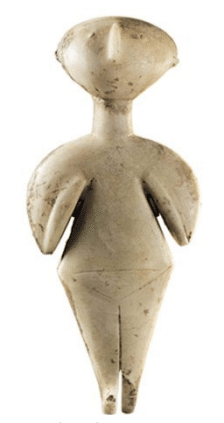“Sticky Beliefs” about Transnational Litigation
Empirical legal scholarship has been on the rise. But empirical research on transnational litigation remains relatively uncommon. This limits our knowledge of transnational litigation and, by hindering assessment of claims about transnational litigation, it allows what I call “sticky beliefs” to take hold. Sticky beliefs are assertions made without empirical support, which are then uncritically…
Continue ReadingConference to Honor Professor Linda Silberman
On April 20-21, this coming Thursday and Friday, the Center for Transnational Litigation, Arbitration, and Commercial Law at NYU School of Law will hold a conference to honor Professor Linda Silberman, who retired in 2022 after 51 years of teaching. The conference is free, but registration is required. The conference program can be viewed here….
Continue ReadingWho Owns the Stargazer?
Claims relating to the ownership of movable property generate an impressive amount of transnational litigation. In April 2022, the U.S. Supreme Court decided a long-running case about the ownership of a painting that had been expropriated by the Nazis in 1939. In July 2022, the U.S. District Court for the Northern District of New York…
Continue ReadingHappy Birthday to TLB!
On March 28, 2022, TLB published its first post. Since then, we have published 245 more. Over the past year, the site has received more than 32,000 visitors from 82 different countries. Roughly half of those readers are based in the United States. Our most frequent non-U.S. visitors are based (in rough order) in (1)…
Continue ReadingMark Your Calendars! Transnational Litigation Events at 2023 ASIL Annual Meeting
On March 29 – April 1, the American Society of International Law will hold its 117th Annual Meeting in Washington, D.C. Registration is open for a few more hours, until March 27 at 3:30pm ET. There are several events that may be of particular interest to TLB readers. Ingrid will convene the Eighth Annual Vagts…
Continue ReadingBill Dodge to Join Faculty at George Washington University Law School
TLB is pleased to announce that founding editor Bill Dodge will join the faculty of the George Washington University Law School in August 2024. He expects to teach International Litigation and Arbitration, International Business Transactions, and Contracts, among other subjects. Bill will join GW Law after 29 years with the University of California, including 20…
Continue ReadingHiring Announcement
The American Society of International Law is hiring for two important positions: Director of Finance and Administration and Director of Programs. These are key positions with a wonderful organization. More information here.
Continue ReadingVisiting Judges at Home and Abroad
Readers may be familiar with phenomenon of visiting judges—where judges from one federal court sit by designation on a different federal court. These judges are typically restricted from holding any other office or sitting on foreign or international courts. But after they leave they bench, they may do whatever they please. The latest issue of…
Continue ReadingMaterial Support of Terrorism Looms over Supreme Court’s Social Media Case
On February 22, 2023, the Supreme Court heard oral argument in Twitter v. Taamneh. The case concerns an act of violence committed by ISIS in a Turkish nightclub in 2017. In bringing suit in the lower courts, plaintiffs alleged that Twitter, Facebook, and Google aided and abetted ISIS’s attack, in violation of 18 U.S.C. §…
Continue ReadingClimate Change Litigation Is Global
As readers of this blog may know, climate litigation is exploding across U.S. courts. States, municipalities, nonprofits, investors, children, and myriad other plaintiffs are bringing lawsuits against private actors for contributing to global climate change and against government officials for failing to take steps to stop it. I have written on this blog about one…
Continue Reading




